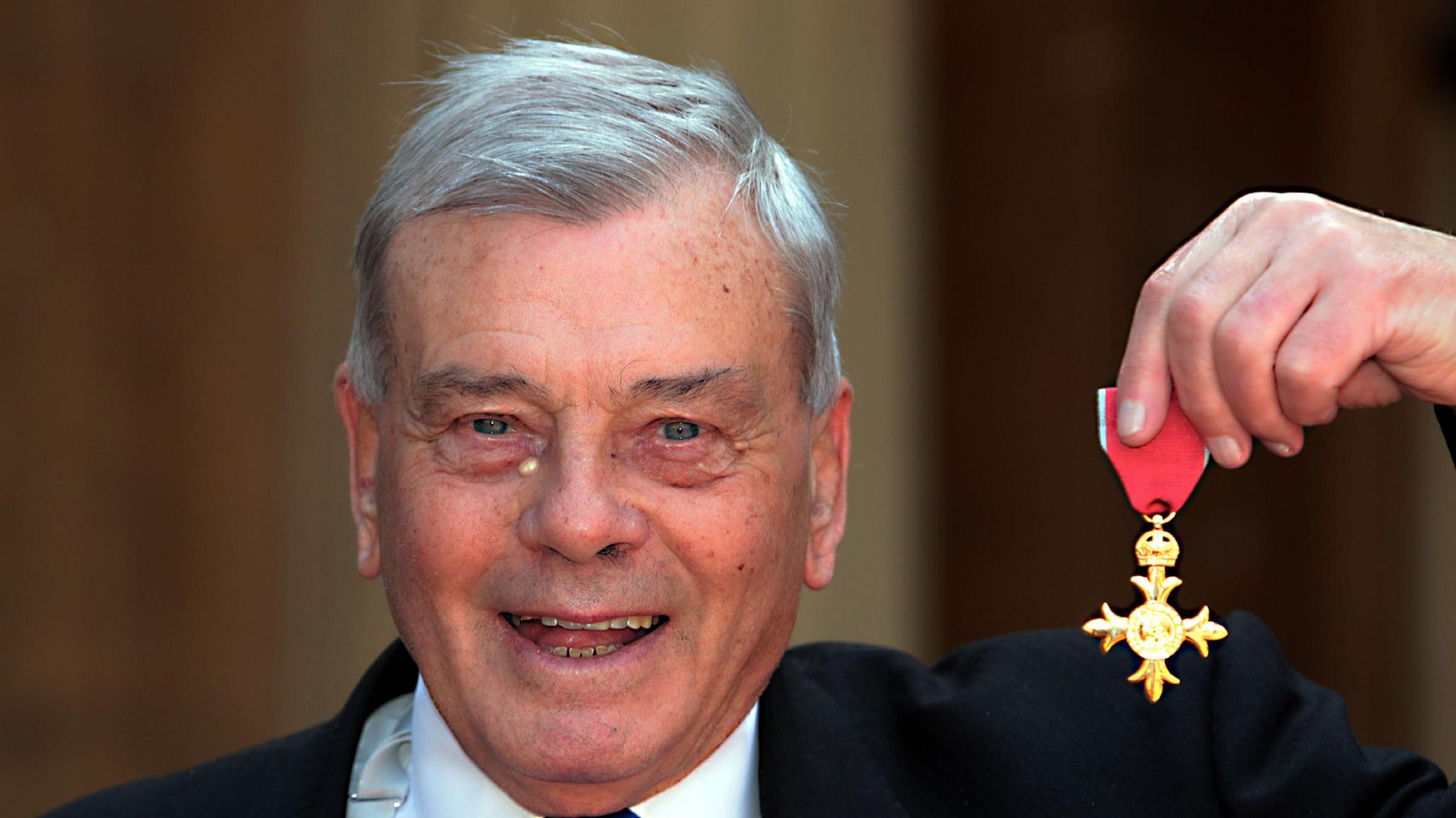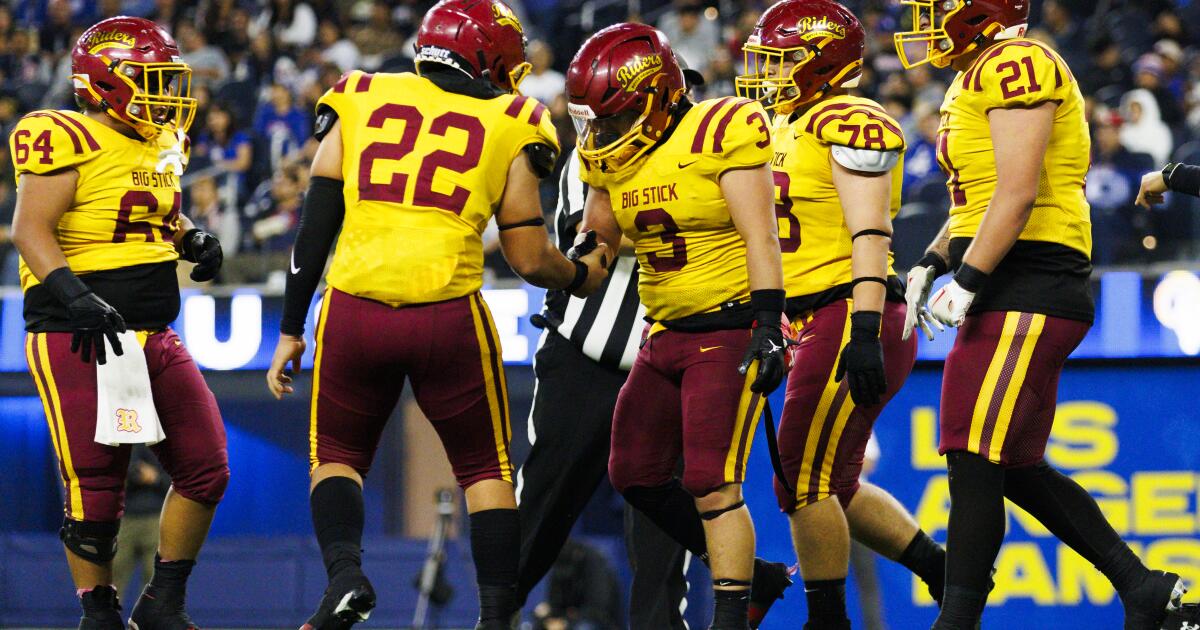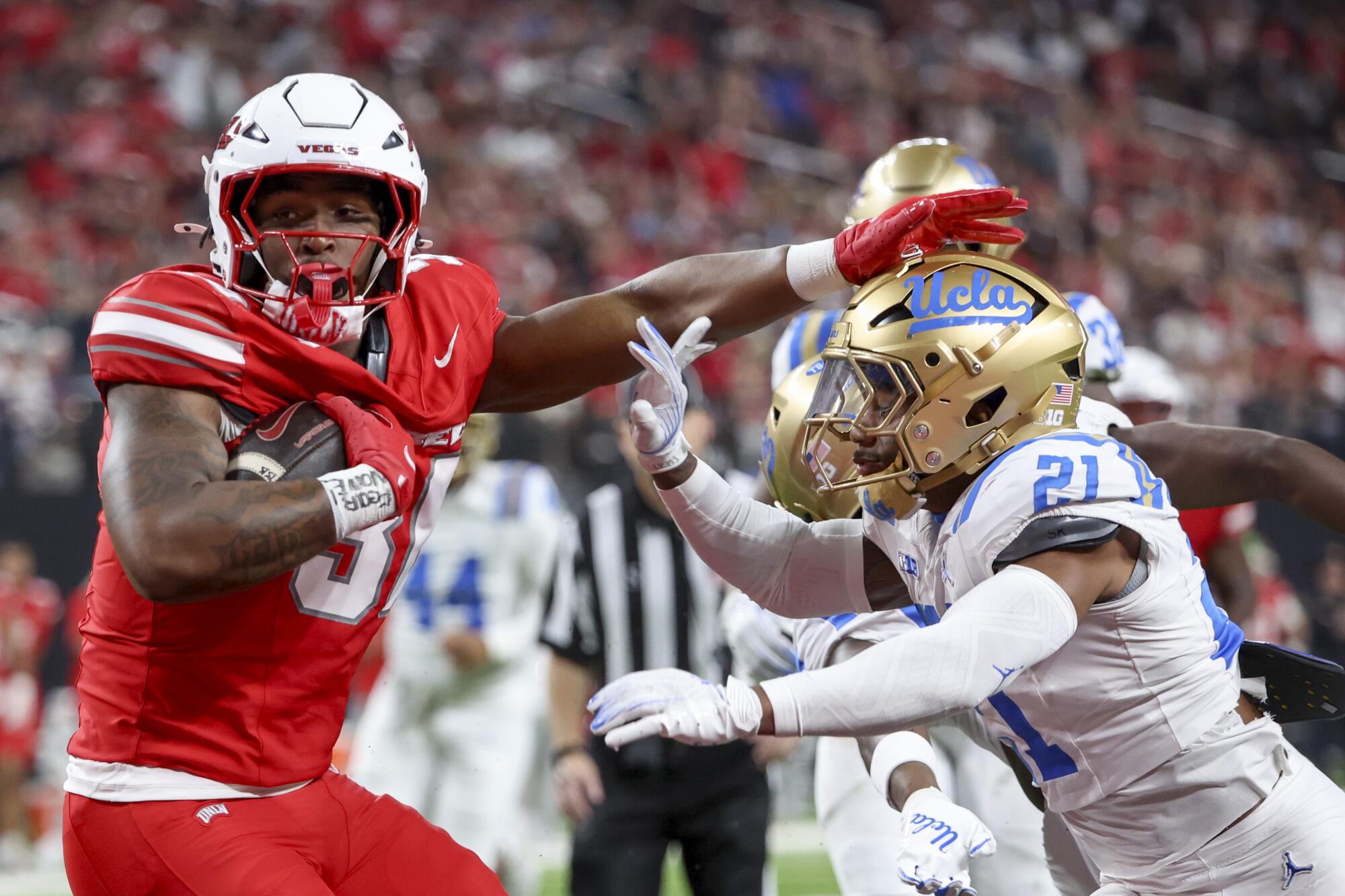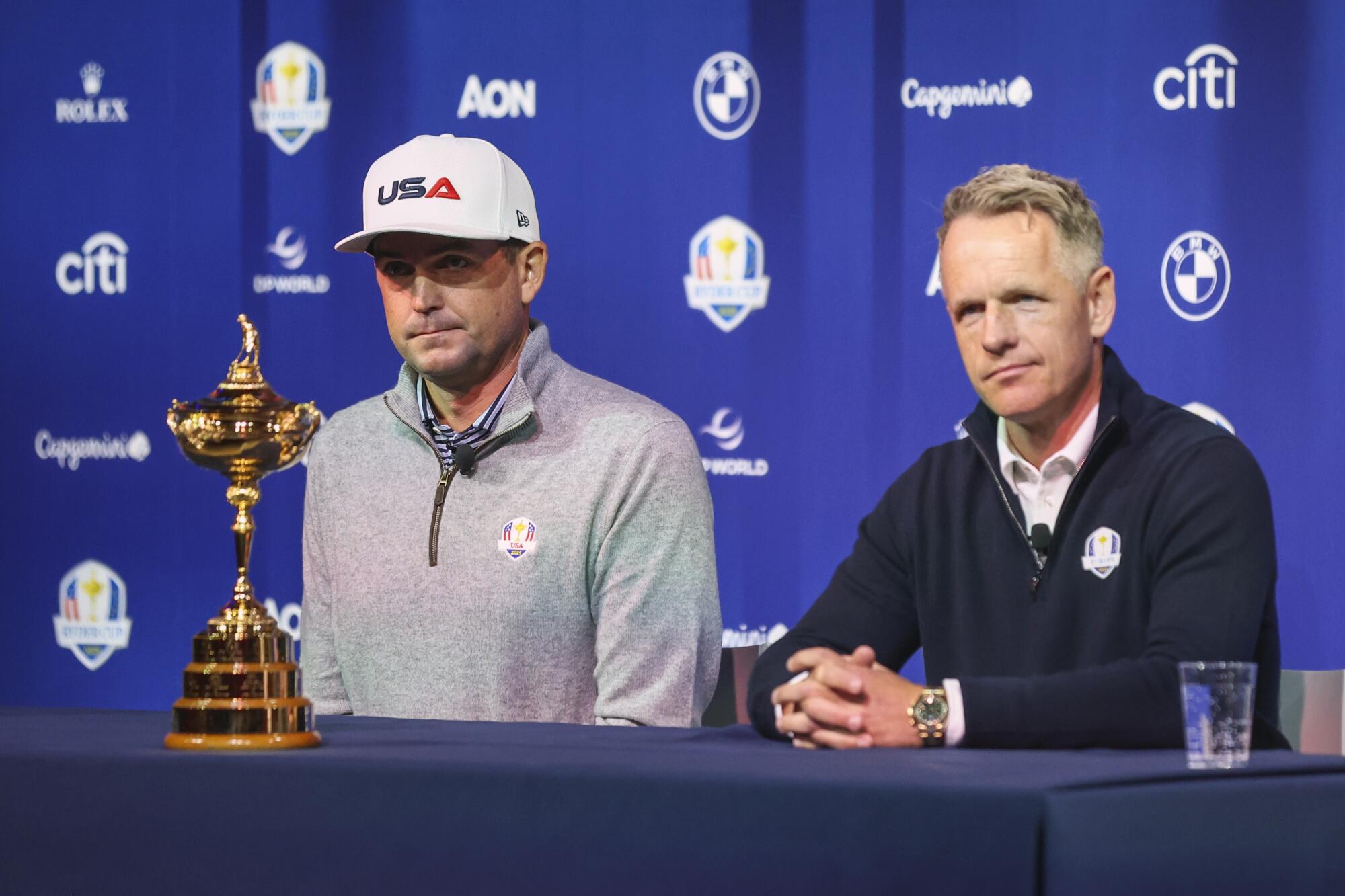To play this video you need to enable JavaScript in your browser.
This video can not be played
Dickie Bird, who has died at the age of 92, did not play cricket for England, yet his status as a legend of the game is in no doubt.
This was the son of a miner, a boy from Barnsley and proud Yorkshireman, whose exploits as an umpire transcended cricket and made him a national treasure.
Harold Bird was born on 19 April, 1933. A good enough footballer to play for Barnsley’s youth team, it was cricket where his real passion could be found.
Famously, his contemporaries at Barnsley Cricket Club were Sir Michael Parkinson and Sir Geoffrey Boycott, long before fame and knighthoods came their way. Bird and Parkinson were opening batting partners, some years older than Boycott. The three lifelong friends would rise to global celebrity in their respective fields.
After three years in the Yorkshire second XI, Bird broke into the first team in 1956, playing alongside legendary figures Fred Trueman, Raymond Illingworth and Johnny Wardle.
-
-
2 hours ago
-
Bird’s highest first-class score, 181 not out, came against Glamorgan in a 1959 season when Yorkshire won the County Championship – the start of a period of dominance during which the White Rose county were crowned champions six times across the 1960s.
Bird, however, played only five more matches in that summer of 1959 and moved to Leicestershire for the following season.
Despite being so closely associated with Yorkshire, the bulk of Bird’s playing career took place at Grace Road – he played 79 first-class matches for Leicestershire compared to 14 for Yorkshire. His returns were modest, averaging below 20 for Leicestershire with one hundred, and his top-level playing career ended in 1964.
An unparalleled life in umpiring began in 1970 and, fittingly, Bird’s first Test came at Headingley in 1973, when New Zealand were the visitors to England.
Bird often cut a nervous figure in the middle, perhaps because incident had the habit of following him around.
In the same summer of 1973 in which Bird stood in a Test for the first time, West Indies also toured the UK. On the Saturday of the Lord’s Test, play was halted for more than an hour because of reports of a bomb threat.
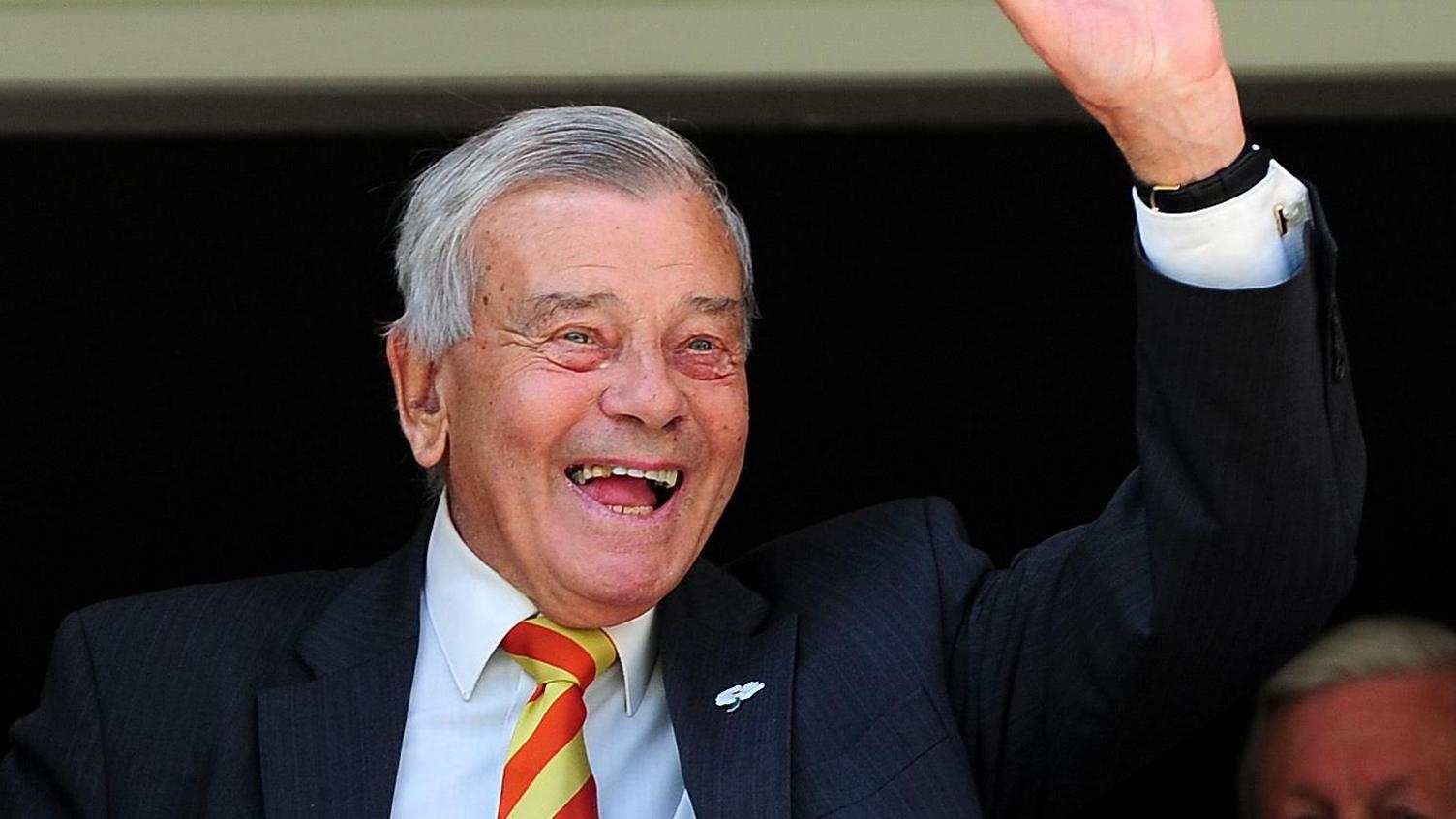
An image of Bird remaining in the middle, sitting on the covers and surrounded by spectators, not only foreshadowed some of the events that would follow, but also his closeness to the cricketing public who appreciated his good-humoured nature.
In 1988, with England taking on West Indies at Headingley, Bird had to deal with play being halted by water oozing from under the outfield. With the Yorkshire crowd keen to make their frustration known, Bird left the field, telling them: “I can’t help it if there’s a burst pipe. There’s water coming up. It’s not my fault, that.”
Again it was West Indies as England’s opponents, this time in 1995, when Bird led the players from the field at Old Trafford because bright sunlight was reflecting into the middle and causing a distraction. “There’s something shining inside your box,” Bird shouted towards the posh seats as he once more took the ire of the crowd.
The chaotic moments took nothing away from the respect Bird commanded as an official. If anything, they helped to grow his reputation. He was chosen to stand in the first three World Cup finals, all held at Lord’s, in 1975, 1979 and 1983. The 1975 final, won by Clive Lloyd’s West Indians, spurned one of Bird’s most famous stories.
When fans invaded the pitch after the Windies defeated Australia by 17 runs, Bird’s famous white hat – specially made by a firm in Luton – was taken from his head.
“I was on a London bus some years after,” Bird told the Test Match Special podcast in June of this year.
“I don’t know what I was doing on a London bus, but I saw a bus conductor with a white cap that looked like one of mine.
“I said ‘Excuse me, man, where did you get that white cap?’. He said ‘Haven’t you heard of Mr Dickie Bird, I pinched it off his head in the 1975 World Cup final!’.”
Beloved by players, even those frustrated by his reluctance to give lbw decisions, Bird was also the subject of countless pranks.
Once, when Bird was standing, former England batter Allan Lamb came to the middle. Perhaps with some artistic licence, Bird claimed that Lamb had forgotten to leave his mobile phone in the dressing room, and persuaded the umpire to look after it for him. This was in the days when mobile phones were not particularly small and not easily ignored.
In an oft-repeated story, Bird said he was at square leg when the phone rang. He answered and a familiar voice boomed down the line.
“This is Ian Botham in the dressing room. Tell that fella Lamb to play some shots or get out.”
When Bird ended his career as an international umpire in 1996, his 66 Tests was then a world record. He was given a guard of honour by the players of England and India as he stepped on to the Lord’s outfield for his final Test.
With tears in his eyes, famous not-outer Bird proceeded to give a marginal lbw against England captain Michael Atherton in the first over of the match.
Even in retirement, Bird’s celebrity status remained undiminished. He released bestselling books and became a fixture on the speaking circuit.
After being awarded an MBE in 1986, he was given an OBE in 2012. In an interview with the Telegraph in 2023, Bird revealed he met Queen Elizabeth II on 29 occasions, saying that the two wrote to each other frequently.
Always worried about being late, Bird was once invited to a 1pm lunch at Buckingham Palace and arrived at the gates at 8.45am.
Bird was immortalised by a statue in Barnsley in 2009, albeit the statue had to be lifted above ground level four years later because his raised umpiring finger would regularly be adorned with rude objects.
Bird never married, instead saying he was married to cricket. “The one thing I’ve missed is not having a family,” he said. “I think I’d have made a good father. But I’ve seen so many divorces in cricket, and I’m the kind of chap, it would have killed me if I’d had a broken marriage. That’s why I never married.”
He remained a constant presence at Headingley, where he paid for a balcony outside the dressing room for the players to sit and watch the game. Both the balcony and a clock at the ground bear his name.
Those tangible memories will endure as part of the legacy of one of British sport’s great characters. Dickie Bird remains one of the most famous cricketing figures the UK has ever produced without ever making a run for England.
